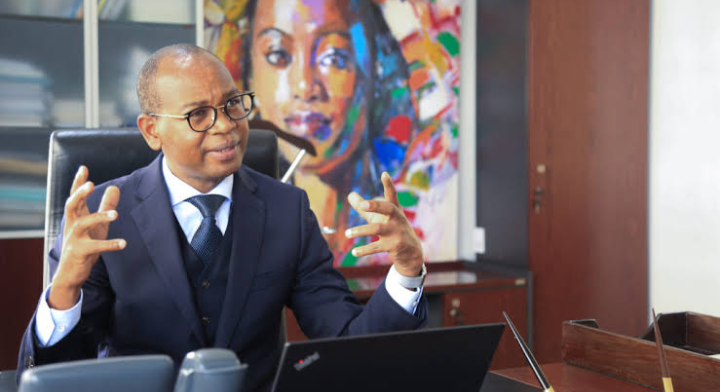Stanbic Bank Kenya has come under scrutiny after being accused of withholding KSh 929.14 million (approximately $7.2 million) that was credited to the accounts of Air Afrik, a Kenyan aviation firm, in 2016.
The accusation was made by Chan Andrea, a senior official at the Bank of South Sudan (BoSS), who claims that Stanbic wrongfully reversed the funds that had been credited to the aviation company’s account.
According to Chan, Stanbic alleged that it could not transfer the funds due to insufficient money in its nostro account, which is a foreign currency account used by banks for international transactions.
However, Chan insists that the nostro account had no connection to the specific funds in question.
The legal battle has emerged in the High Court of Kenya at Nairobi, with Air Afrik suing Stanbic Bank for allegedly freezing and reversing the credited amount.
Chan, the director of financial markets at BoSS, testified in court that Stanbic should not have credited the funds into Air Afrik’s account unless it had received the corresponding amount in its nostro account.
According to him, Stanbic had no grounds to reverse the funds, as the airline was not involved in the internal processes of the bank, such as the management of the nostro account.
Air Afrik claims that this reversal of funds caused significant damage to its operations, leading to the termination of a $20 million (approximately KSh 2.58 billion) plane leasing agreement with the government of South Sudan.
The aviation company argues that it had a leasing agreement with South Sudan’s Ministry of Defense, under which it had agreed to lease several aircraft to the government for one year, with an option for renewal up to five years.
The total contract was valued at $20.6 million, and 35% of the contract value, around $7.2 million, was to be paid in advance into Air Afrik’s Stanbic account.
The funds were supposed to facilitate the execution of the contract.
However, the reversal crippled Air Afrik’s ability to meet its obligations under the contract, forcing the termination of the deal.
The airline is now seeking compensation for the losses incurred, including the loss of business and reputational damage caused by Stanbic’s actions.
Stanbic Bank, on the other hand, denies these claims, arguing that it had no choice but to reverse the transaction.
The bank contends that the funds were never fully credited to its account by the Bank of South Sudan, and the initial credit was merely a paper entry without the actual funds being transferred.
According to Stanbic, allowing the credit to stand without sufficient funds in its nostro account would have exposed it to significant financial risk.
The bank claims it acted within its rights to reverse the erroneous entry.
The case has wider implications for Stanbic Bank’s operations in South Sudan.
In a related development, the Bank of South Sudan has threatened to revoke Stanbic’s license to operate in the country, criticizing the bank for handling the case through its Kenyan branch rather than its South Sudanese operations.
The central bank of South Sudan has insisted that Stanbic must transform its South Sudan business into a subsidiary, rather than operating it as a branch reporting directly to Nairobi.
This legal battle, which began in 2018, continues to evolve, with the next hearing scheduled for November 2024.
The reputational and financial stakes for both Stanbic and Air Afrik remain high.
Air Afrik hopes to recover the withheld funds, along with compensation for the losses it has suffered, while Stanbic continues to maintain its innocence, citing procedural and financial justifications for its actions.





















Add Comment